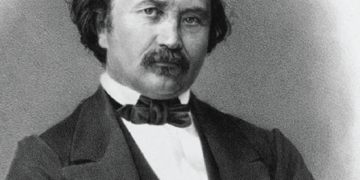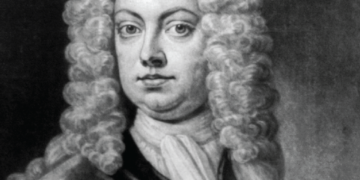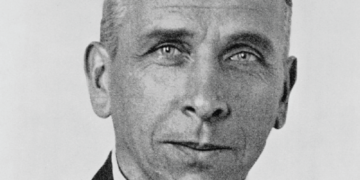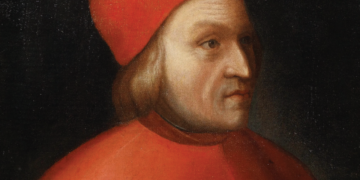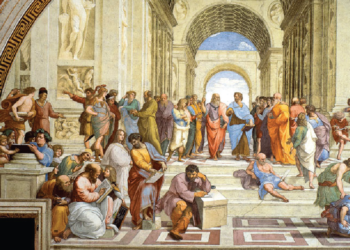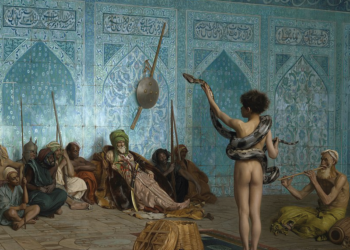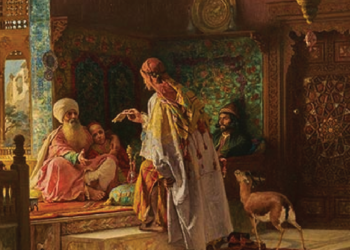Ann Robert Jacques
1) His Biography
Ann Robert Jacques Turgot, often referred to simply as Turgot, was a notable French economist, statesman, and philosopher of the 18th century. Born on May 10, 1727, in Paris, France, Turgot’s life and career left a significant mark on the history of economic thought and policy. His biography is a testament to his dedication to reform and his lasting influence on France during a transformative period.
His early life was marked by his exceptional intellect. He studied at the renowned Collège Louis-le-Grand in Paris, where he demonstrated a profound aptitude for mathematics and philosophy. Later, he attended the Collège de Navarre and pursued legal studies at the Sorbonne. His education laid the foundation for his future contributions to economics and governance.
After completing his education, Turgot embarked on a career in the French civil service. His talents did not go unnoticed, and he quickly rose through the ranks, ultimately becoming the Intendant (administrator) of the Limoges region in 1761. In this role, he implemented numerous progressive reforms, including improvements to the region’s infrastructure, agricultural practices, and education system. These early experiences in governance showcased his commitment to practical reforms that would benefit society as a whole.
In 1774, he reached the pinnacle of his political career when he was appointed as France’s Controller-General of Finances by King Louis XVI. This appointment provided him with the opportunity to enact sweeping economic reforms. Turgot advocated for measures aimed at reducing government waste, streamlining taxation, and promoting free trade. However, his reforms faced fierce opposition from entrenched interests, and his tenure as Controller-General was short-lived. His dismissal in 1776 marked a significant setback for his economic vision, but his ideas continued to influence later generations of economists.
Throughout his life, Turgot was a prolific writer and thinker. He penned influential works such as “Reflections on the Formation and Distribution of Wealth” and “The Six Edicts.” In these writings, he expounded upon his economic theories, advocating for the principles of laissez-faire and free-market capitalism. His ideas were instrumental in shaping the economic thought of the Enlightenment and were later embraced by classical economists like Adam Smith.
In his later years, Turgot withdrew from active politics but remained engaged in intellectual pursuits. He continued to write and correspond with fellow scholars, contributing to the ongoing development of economic theory. Ann Robert Jacques Turgot passed away on March 18, 1781, leaving behind a lasting legacy in the fields of economics and governance. His biography serves as a testament to a dedicated reformer and thinker whose ideas continue to shape economic policy and philosophy to this day.
2) Main Works
Reflections on the Formation and Distribution of Wealth (1766):
This seminal work, often considered Turgot’s magnum opus, explores the nature of wealth, its creation, and its equitable distribution within society. Turgot argues that wealth is produced through productive labor and that free-market mechanisms, rather than government intervention, should determine its distribution. He is a staunch advocate of laissez-faire economics, advocating for minimal government interference in economic affairs.
The Six Edicts (1770):
Turgot served as France’s Controller-General of Finances during a time of fiscal crisis. In response, he issued a series of edicts aimed at modernizing France’s archaic tax system and reducing government expenditure. These edicts included reforms to taxation, trade regulations, and land tenure. Despite their ultimate failure, these measures demonstrated Turgot’s commitment to fiscal responsibility and economic reform.
Plan for the Work (1772):
In this work, Turgot outlines a comprehensive plan for administrative and economic reform in France. He proposes streamlining the bureaucracy, eliminating inefficient regulations, and promoting agriculture and industry. While his plan was never fully implemented, it laid the groundwork for later reform efforts in France.
Letter on Paper Money (1770):
Turgot’s “Letter on Paper Money” critiques the use of fiat currency and warns against the dangers of inflation. He argues that a stable currency, backed by tangible assets, is essential for economic stability and prosperity. This work foreshadows later debates on monetary policy and the role of central banks.
Eloge de Gournay (1759):
This is a eulogy in honor of Turgot’s mentor, Vincent de Gournay, who was a prominent French economist. In this work, Turgot praises Gournay’s advocacy for economic liberalism and the idea that governments should not obstruct economic activities.
3) Main Themes
Laissez-Faire Economics:
Turgot was a staunch advocate of laissez-faire economics, the idea that government should have minimal interference in economic affairs. He argued that the free market, driven by individual self-interest and competition, would efficiently allocate resources and promote economic growth. Turgot believed that government intervention in the economy often led to inefficiency and unintended consequences.
Wealth Creation and Distribution:
Turgot explored the concepts of wealth creation and its equitable distribution. He contended that wealth was produced through productive labor and that individuals should be free to enjoy the fruits of their work. While acknowledging inequalities in wealth, Turgot believed that the free market would naturally distribute wealth based on merit and contribution to society.
Fiscal Responsibility:
As France’s Controller-General of Finances, Turgot was deeply concerned with fiscal responsibility and the need for sound fiscal policy. He advocated for reducing government expenditure, simplifying the tax system, and eliminating wasteful spending. Turgot believed that responsible fiscal management was essential for economic stability.
Monetary Policy and Inflation:
Turgot was critical of fiat currency and warned against the dangers of inflation caused by excessive money printing. He argued that a stable currency, backed by tangible assets, was crucial for maintaining the value of money and preventing economic instability. This theme laid the groundwork for later discussions on monetary policy.
Individual Liberty and Property Rights:
Turgot championed the principles of individual liberty and property rights. He believed that individuals had the right to pursue their own interests and enjoy the fruits of their labour without undue government interference. Turgot’s ideas align with the broader Enlightenment ideals of liberty and individual rights.
4) His Contribution to Economics
Ann Robert Jacques Turgot made significant and lasting contributions to the field of economics, particularly during the Enlightenment period. His ideas and insights continue to influence economic thought and policy to this day.
His most prominent contribution lies in his advocacy of laissez-faire economics. He championed the idea that the government should have minimal involvement in economic affairs and that individuals pursuing their self-interest within a free market would naturally lead to the efficient allocation of resources. This concept, which he expounded upon in his work, laid the groundwork for classical economic thought and played a foundational role in the development of modern capitalism.
Additionally, his emphasis on fiscal responsibility and sound fiscal policy left a lasting legacy. During his tenure as France’s Controller-General of Finances, he sought to streamline the tax system, reduce government expenditure, and eliminate wasteful spending. While his reforms faced opposition and were not fully implemented, his ideas on fiscal prudence influenced later generations of policymakers and economists.
His writings on monetary policy and inflation also had a significant impact. He warned against the dangers of fiat currency and advocated for stable money backed by tangible assets. This perspective contributed to the ongoing discussions on central banking and the importance of maintaining the value of a nation’s currency.
Moreover, his defence of individual liberty and property rights aligned with Enlightenment ideals and became fundamental principles in the development of liberal economic thought. His belief in the right of individuals to enjoy the fruits of their labour without undue government interference remains a cornerstone of modern market-oriented economies.
5) His Legacy
Ann Robert Jacques Turgot’s legacy is enduring and multifaceted, leaving an indelible mark on the fields of economics, governance, and political philosophy. His ideas and principles have had a lasting impact on both theory and practice, shaping the course of economic thought and influencing policymaking across the world.
One of the most prominent aspects of Turgot’s legacy is his steadfast advocacy for laissez-faire economics. His belief in minimal government intervention in economic affairs, as articulated in his writings, has played a pivotal role in the development of modern capitalism and market-oriented economies. Turgot’s ideas continue to underpin discussions on the role of government in economic life, guiding policymakers and economists in their pursuit of efficient and prosperous societies.
Turgot’s commitment to fiscal responsibility and sound fiscal policy also endures as a vital part of his legacy. His efforts to reform taxation, reduce government waste, and eliminate inefficiencies laid the groundwork for subsequent generations of reformers and fiscal policymakers. The principles of fiscal prudence that he championed remain relevant in contemporary debates on responsible economic governance.
In the realm of monetary policy, Turgot’s warnings about the dangers of inflation and his advocacy for stable, asset-backed currencies continue to resonate. His insights inform discussions on central banking, currency stability, and the preservation of the value of money in modern economies.
Furthermore, Turgot’s defence of individual liberty and property rights aligns with enduring Enlightenment ideals. His belief in the importance of protecting these rights from undue government interference continues to influence political and legal philosophy, particularly in democratic societies where individual freedoms are cherished.
Turgot’s legacy extends beyond the theoretical realm; it has had a practical impact on governance and policy. His administrative reforms, though often met with resistance in his own time, inspired later efforts to streamline bureaucracy and improve government efficiency. His ideas also influenced subsequent economic thinkers, including Adam Smith, who built upon Turgot’s work in their own contributions to economic thought.


